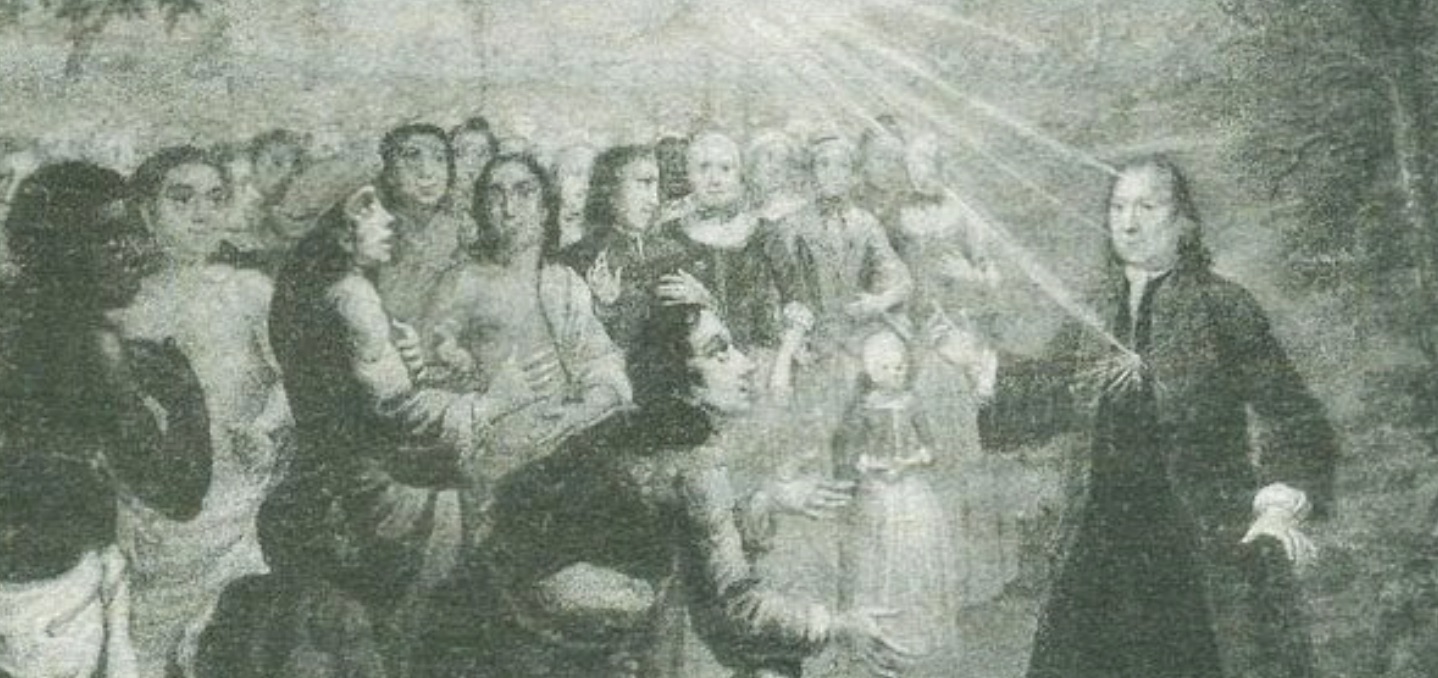Revival Stories
Revivals of the Carolinas: The Moravian Effect (Part 1)

Revivals are birthed at specific times and places in history. Usually they expand as non-local people start visiting to see for themselves the presence and power of God first-hand and then return home with the revival spark. Alternatively, small bands of leaders often go out from the original site purposefully to take this touch of God to uncharted areas.
In the case of the Moravians, you have a small rag-tag group of radical Christ-followers who experienced a powerful Holy Spirit outpouring on August 13th, 1727. And they, through their unrelenting prayers and life-example, would become explosive catalysts for many significant spiritual awakenings in history over the next few centuries. Even though their early stories arose in the towns of Moravia and Germany, yet the rippling effect of their lives would carry into far-away America and even into the revival history of North Carolina.
What caused this powerful Moravian effect? One aspect of this was the connected prophecies given by God throughout this group’s history. These Christians believed in God’s promises. John Hus was an important Bohemian voice in the 1400’s that pre-dated the Moravian church yet directly influenced their spiritual thinking. Hus was known as a priest and a reformer of the dominant Christian system of that time. He advocated following the Word of God over mere church traditions; he called for all believers to turn from sin and to adhere to a higher level of moral purity; he sought for all laymen - not just clergy - to be involved in ministry and leadership. Unfortunately, this got him branded a heretic and excommunicated. He died for his faith. But, before he died, he prophesied that his message of spiritual reformation would not fade away but become a hidden seed that would fall to the ground and die and one day bear great fruit.
In the 1480’s, Bohemian Christians who followed John Hus’ reforms formed the Unity of the Brethren, an ancestor group of today’s Moravians. They faced great persecution because of their beliefs, often suffering physical violence and seeing their homes torched. Yet they persevered in Christ and lived their lives for Jesus.Around the 1600’s, one of their leaders, John Comenius led this group to leave their native land to find a safe place to live. Comenius faced disdain and exile for his role with these believers. In 1627, he gave a prophecy that bore similarities to Hus’ prediction: This group will become a hidden seed that will die but also bear fruit unto revival… in 100 years!
Count Zinzendorf of Germany, born into a wealthy family, had always been groomed to serve in some official high-capacity government position.But, from a young age, he also had been drawn devotedly to his Savior Jesus and was an intense prayer warrior. In college, he helped initiate 7 prayer fellowships during his time there. When he was 22 years old, in 1722, Zinzendorf compassionately opened his private estate to house a Moravian refugee who had faced grave persecution for his faith. Soon, not only did more Moravian refugees arrive but also many other spiritual dissidents who had nowhere safe to go. As this grew into a small town, discord and disharmony soon followed. In May of 1727, Zinzendorf gathered the group of 300 together to agree to and sign a contract that pursued unity in love and re-dedicated their lives to Christ. Everyone agreed. Many committed to praying fervently for revival.
This became the 2nd key aspect of the Moravians’ vast influence: They prayed incessantly. Their devotion attracted the Holy Spirit. On July 16th, Zinzendorf appealed to his community to seek God even more. As he poured out his heart in prayer, his tears and passion provoked his listeners to delve wholeheartedly into God’s Word and His presence. It was like gasoline on an open fire! Some of the youth, after spending days in prayer, experienced a mighty personal revival, with an unshakeable reassurance of salvation and God’s unflinching love. On August 5th, Herrnhut began their first “Night Watch” in which Zinzendorf and 14 others labored in worship and anguished prayer all night long. Finally, on Wednesday, August 13th, they all met together. Zinzendorf shared a message about the cross. Time was given for confession and reconciliation. Then they proceeded to the Communion table, and it was then that the Holy Spirit broke out in full power! Such an amazing outpouring of God’s love flowed upon them and spilled out in extraordinary love for those around them. There was singing and weeping and praying. After an astounding summer of rising revival anticipation, the Moravians encountered their own Pentecost that day and in the days which followed. And it all happened, bearing great fruit, almost exactly 100 years after the given prophecy.
QUESTIONS TO DISCUSS:
- What grabs your attention as you hear the story of the Moravians? Is there anything you admire immensely? Is there anything that bothers you? What do you think it must have been like to be one small group, holding onto their faith, standing against the brute force of prideful kings and a corrupt organized Church?
- Why do you think it is important to see how you or your church fits into God’s divine timeline? How confident are you that God will indeed keep all His promises and accomplish His revealed prophecies? What kind of a personal destiny has God revealed to you?
- In what ways was the prayer life of the Moravians extraordinary? What motivates a Christian to go to such lengths to pray for the world and to pray for revival?